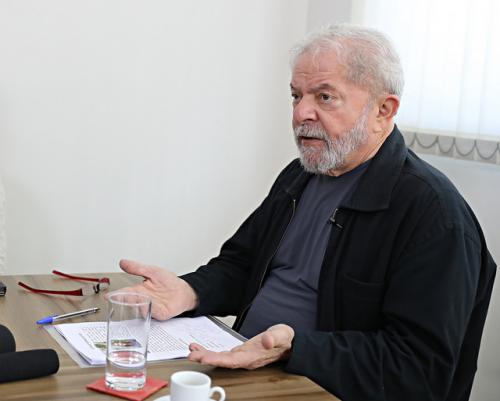'Hunger is returning to Brazil', says former President Lula
- Opinión

During an exclusive interview with Brasil de Fato, former President Luiz Inácio Lula da Silva highlighted several worrying socio-economic trends due to a series of controversial policies implemented by the undemocratically elected government of Michel Temer.
In his interview, the ex-President warned that his country is witnessing increasing levels of hunger due to the “irresponsible” public policies carried out by the Temer administration.
“Hunger is returning to Brazil due to the irresponsibility of those who were complicit in the coup,” Former Brazilian President told Brasil de Fato.
In 2014, the U.N. issued a report, which found that Brazilian government had reduced undernourishment by more than 80 percent over the previous ten years, removing itself from the World Hunger Map.
Lula da Silva, who launched the third leg of his national bus tour on Monday, is traveling the country in efforts to identify the needs and struggles of his supporters.
“During my visits to various communities throughout the country, it has saddened me to hear people say that poverty has returned and that unemployment is on the rise. Many people have seen their wages decrease as inflation increases.”
Under the Workers Party (PT), lead by Luiz Inácio Lula da Silva and Dilma Rousseff, significant progress was made in expanding social services to Brazil’s disadvantaged populations by increasing public investment in social welfare programs, which resulted in significant reductions in poverty and higher wages.
During The PT government, between 2000 and 2015 the minimum wage increased by 64% in real terms, while average adult income grew by 18%. Meanwhile, from 2003-2012, poverty was reduced by 55 percent.
During his interview, Lula da Silva went on to criticize the austerity measures and policies implemented under the Temer administration, which he described as explicitly “anti-worker”.
Lula da Silva also outlined a broad strategy to improve the country’s recent sluggish economic performance and high unemployment rate. During the interview, he emphasized the importance of implementing public policies, which seek to boost the purchasing power of the country’s lowest wage earners in efforts to expand domestic markets and generate employment.
Brazil suffered through its worst recession on record during 2015 and 2016 and the economy is expected to grow by less than 0.5 percent in 2017.
In order to reverse the recent policy changes carried out by the Temer administration, Lula da Silva proposed that if allowed to run as a presidential candidate in 2018 election, he would hold a referendum to revoke the recent measures introduced under the Temer government.
Edition: Beatriz Pasqualino
Version in English: Nate Singham
December 4, 2017
Del mismo autor
- Barbados rompe laço colonial britânico e se declara república 01/12/2021
- ‘Brazilians are hungry because they have no income, not because of a lack of production’ 16/09/2021
- The burning of a statue brought to light the permanence of Brazil’s history of colonization 30/07/2021
- Em sessão histórica, Convenção Constitucional do Chile elege Elisa Loncón presidenta 04/07/2021
- Mobilizations against Bolsonaro gain strength and mobilize around 750 thousand people 22/06/2021
- Pandemic in Brazil: app delivery laborers report worsening working conditions 15/04/2021
- O que defendem Pedro Castillo e seu partido 14/04/2021
- Amazônia concentra 7 dos 10 municípios que mais emitem carbono no Brasil 04/03/2021
- El Salvador vai às urnas em meio a escalada autoritária 26/02/2021
- MST defende a vida dos brasileiros e pede saída imediata de Bolsonaro 01/02/2021
